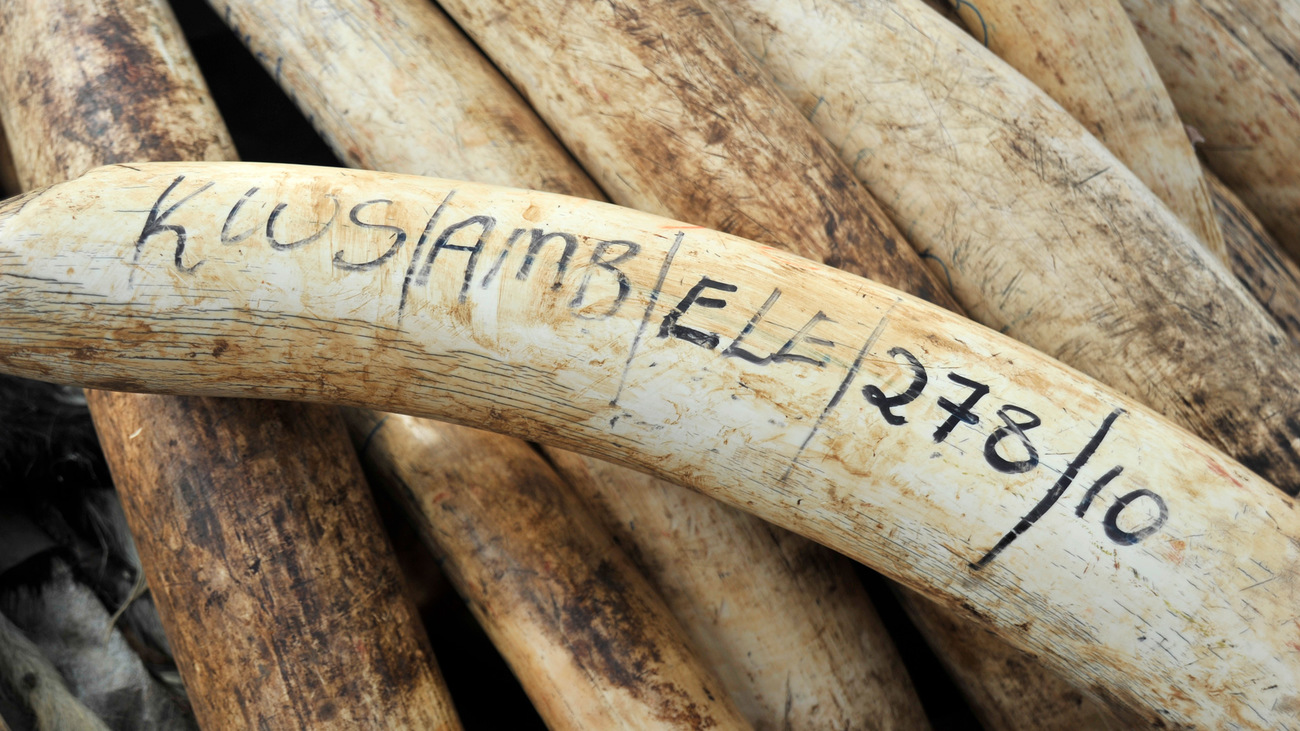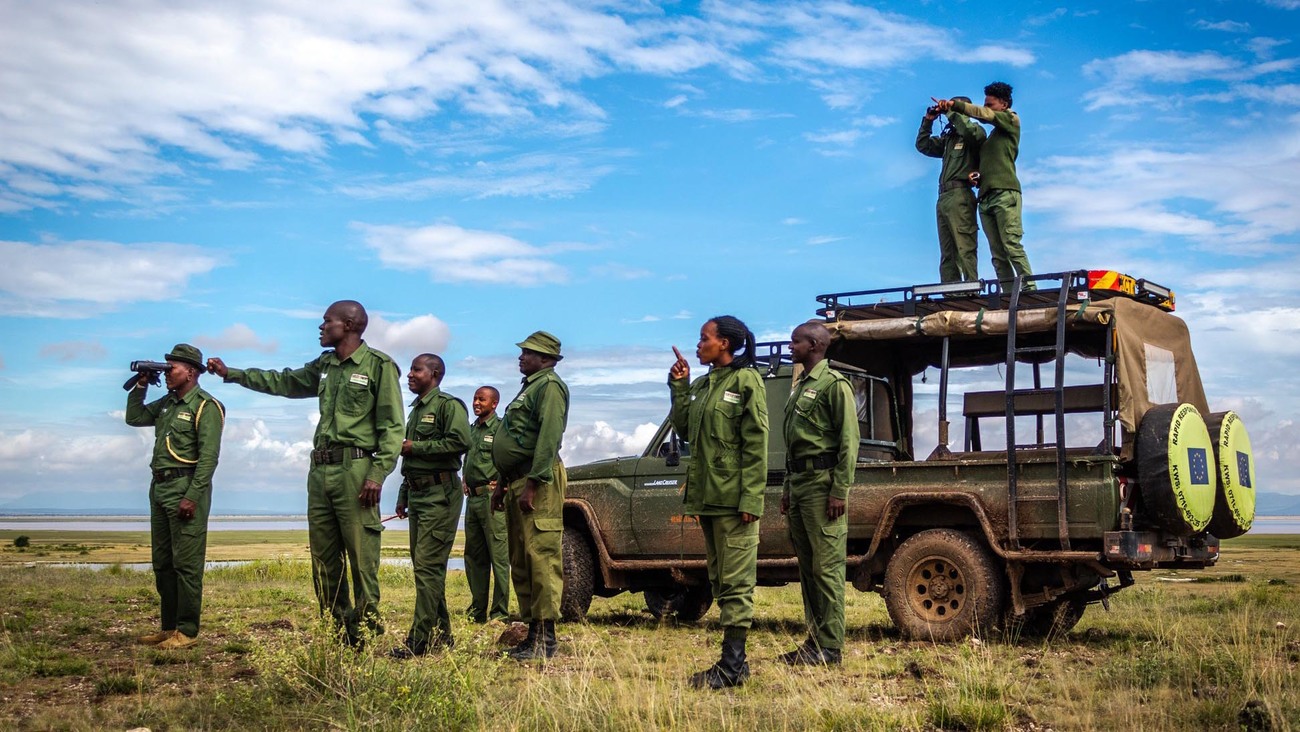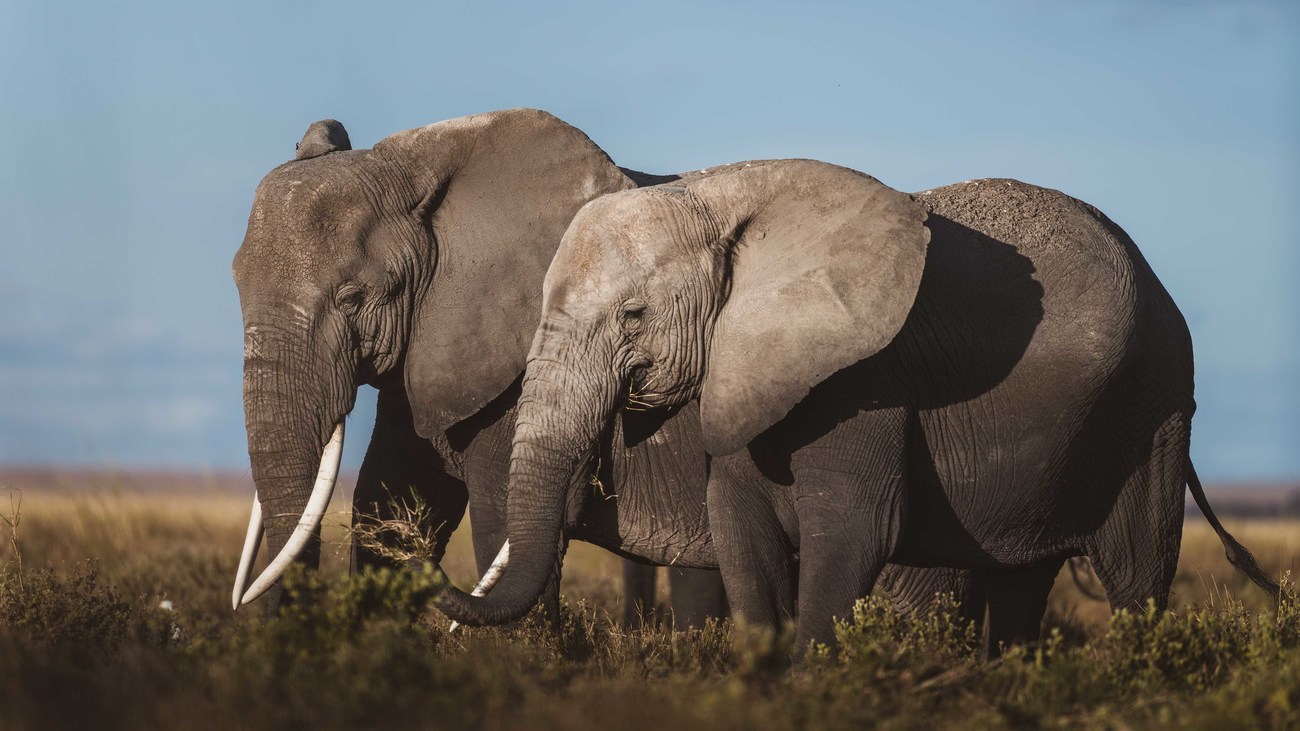James Isiche
You put your life on the line. The people who come to poach elephants...come with sophisticated weapons. You have to be alert. All the time. But if you take it like a calling, it’s very rewarding.
how ivory bans impact species survival on the ground
Elephants are in crisis, but new EU measures can help protect them
There is cause to celebrate this week as the European Commission announces its strictest ever guidelines to end illegal ivory trade. The European Union (EU) is among the world’s largest exporters of legal elephant ivory.
While not quite a total ‘ban,’ the new guidelines severely restrict domestic ivory trade, and mark an important milestone by the EU by addressing the slaughter of thousands of elephants each year by poachers.
Until now, the existence of legal domestic ivory markets in the EU has provided cover for criminals to launder illegal ivory. It can be tied to historical stockpiles across Europe (a result of former colonial ties), growing demand for ivory in Asia, and more.
So, what does the enactment of such strict guidelines actually mean for elephants, people and habitats they support in the savannahs and forests of Africa and Asia? Let’s take a look.
Animals around the world are killed for their body parts or captured live for sale on the illegal wildlife market. It’s a cruel, dangerous, and unfortunately lucrative criminal business. Regulation and enforcement vary, and loopholes abound.
Species are becoming extinct 100 times faster than they would without human impact, and direct exploitation is identified as a leading cause. Without bold and rapid action, African elephants could be poached to extinction within just one generation.
They are highly intelligent, social creatures that mourn their dead and can keep weeks-long vigils over fallen family members. Research shows that the effects of poaching extend to that of survivors and wider elephant society, which suffers long-term emotional and social distress.
As a keystone species, elephants are also vital contributors to the ecosystems around them. Loss of elephant populations and their migratory ranges also impacts smaller animals, people, the land we share, and the health of our climate.
Ending ivory trade—legal or illegal—leads to the end of poaching and enables the species to thrive.

To protect elephants and the people who live alongside them, IFAW endeavors to secure land for safe pathways. We have partnered with local communities surrounding Amboseli National Park since 2012. More animals roam outside the park than inside, sometimes coming into conflict with people. IFAW supports more than 84 community wildlife rangers including 16 female rangers who help to prevent this, connecting people and animals in more ways than we could have even hoped for.
150,000+ elephants roam across Eastern and Southern Africa—60% of them outside national parks and conservancies, on communal lands. They know no borders—they’ve roamed the continent for millions of years—but rapid infrastructure development and incompatible land use often result in human-wildlife conflict. This can lead to destruction of crops and property, and sometimes injury or death of people and elephants.
Ultimately, IFAW and wildlife conservation agencies seek to cooperate across international borders and park boundaries to expand protection and habitat for animals. We continue to work on the ground with governments, communities, and private landowners to create the room elephants need to roam.
Protecting elephants from threat and conserving room to roam for species survival can only be accomplished through fresh thinking and bold action, and we engage communities and our partners at every step.
First, we empower communities. We scale our proven community partnership model to empower communities through the leasing and securing of wildlife habitat, providing scholarships, food security and employment opportunities that support income generation. We engage the community in natural resource management for ecosystem health and as a sustainable economic driver.
With utmost importance, we support rangers and community scout teams. Rangers need training, field housing and provisions, vehicles to patrol protected areas and buffer zones, and equipment to protect wildlife from poachers. Patrolling more land requires more rangers and boots on the ground.
In total we support 454 rangers in the places where we work in Africa.
IFAW’s Malawi-Zambia trans frontier project supports 92 wildlife rangers, including 12 women in Kasungu National Park. Across the border in Zambia a further 86 rangers, including seven female community scouts are supported in Lukusuzi National Park and Luambe National Park—between them they protect a massive 7,000 square-kilometer landscape.
Further south in Zimbabwe, 176 wildlife rangers are supported in Hwange National Park, and at the IFAW-Wild is Life Panda Masuie Release Project, 16 Forestry Department rangers, and four community scouts are deployed to protect the forest.

76% of African elephants live in habitats that cross national borders. That is why IFAW partners with Kenya Wildlife Service (KWS), the respective Departments of National Parks and Wildlife for Malawi and Zambia, and the Zimbabwe Parks and Wildlife Management Authority (ZimParks) to protect landscapes, animals and communities.
Over the past few years in Kenya, we have witnessed a dramatic decrease in poaching, improved livelihoods for people, and critical landscapes protected from development. In 2020, only 11 elephants were poached in the whole of Kenya, compared to 386 in 2013. IFAW’s support to KWS in Amboseli and Tsavo, together with that of others, has contributed to this success.
We strive to take this proven method and expand/duplicate it for the community areas between Tsavo and Amboseli National Park, to the Tanzania border, understanding that wildlife in such crossborder landscapes experience unique security challenges on the one hand, but also provide hope for more room to roam.
Similarly along the border of Malawi and Zambia, poachers can easily cross the border and avoid authorities. In 2017, thanks to IFAW’s success and funding from USAID, the government engaged with IFAW to create a task force that could extend beyond borders in combatting wildlife crime and trafficking. We’ve worked with the local communities to create job opportunities that directly and indirectly protect elephants. Instead of hunting elephants, people can now join ranger training programs, maintain park vehicles, or sew ranger uniforms. Before anti-poaching units were established in Kasungu, 4–5 elephants were killed in the park every month. After the units were established, there was only one incident of elephant poaching in an entire year.
Zimbabwe is home to the world's second largest elephant population (83,000). IFAW’s partnership with ZimParks supports protected area conservation across the Hwange-Matetsi-Zambezi landscape, part of a massive five-country trans frontier protected area. We’re making life safer for elephants and other wildlife by giving rangers the tools they need to effectively curb poaching, improving parks infrastructure, and supporting wildlife-friendly livelihoods projects that protect people.

Populations of wild animals have dropped to less than half of their numbers in 1970, while the human population has doubled. Only five times before in our planet’s history have so many species and so much biodiversity been lost so quickly. The fifth was when the dinosaurs were wiped out.
Our goal at IFAW continues to be to protect and connect critical habitat for elephants and other wildlife, while thoughtfully contributing to improved human wellbeing. Threats of poaching and illegal wildlife trade, fragmented habitats, human-wildlife conflict and climate change are all coming at elephants in today’s modern world. We see a direct correlation between social and environmental justice and the health of the animals who share our home.
This week’s EU announcement is long overdue and of crucial importance, but requires stronger commitment by all parties to implement and enforce. More importantly, this also calls for the EU to invest in alternative livelihood options for indigenous people and local communities that coexist with wildlife. We must continue to act for wildlife—and fast—on a global scale. This is vital if we wish to protect elephants and other wildlife species for future generations.
- James Isiche, IFAW Regional Director, East Africa
James Isiche
You put your life on the line. The people who come to poach elephants...come with sophisticated weapons. You have to be alert. All the time. But if you take it like a calling, it’s very rewarding.
Every problem has a solution, every solution needs support.
The problems we face are urgent, complicated, and resistant to change. Real solutions demand creativity, hard work, and involvement from people like you.
Unfortunately, the browser you use is outdated and does not allow you to display the site correctly. Please install any of the modern browsers, for example:
Google Chrome Firefox Safari